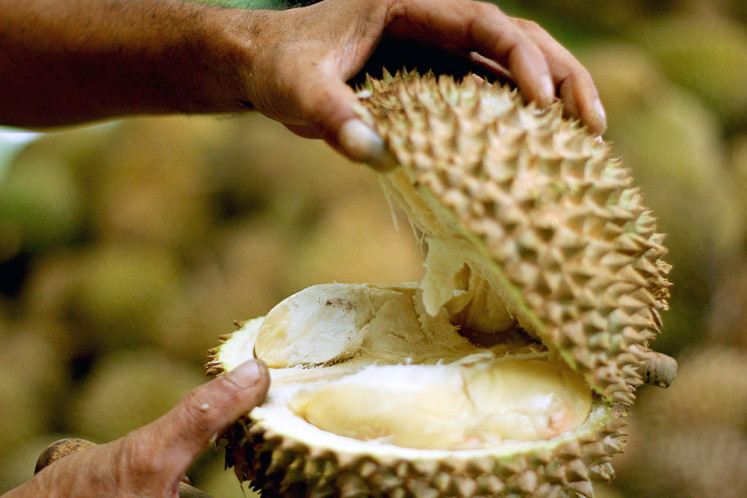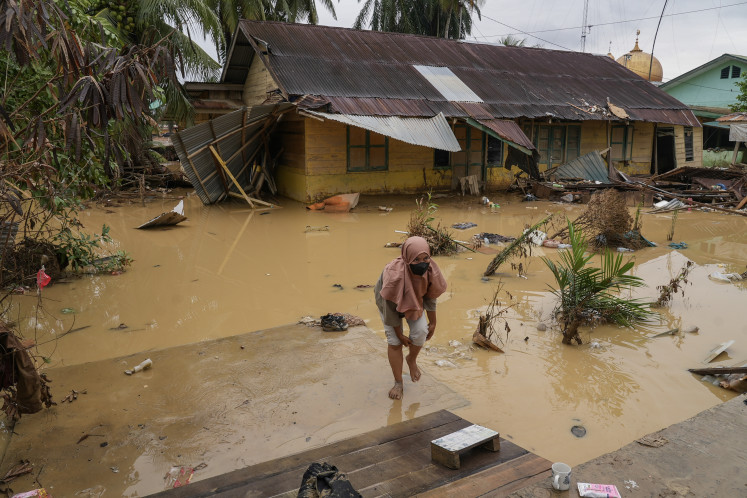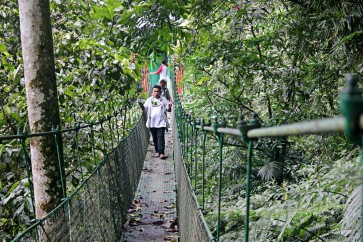Popular Reads
Top Results
Can't find what you're looking for?
View all search resultsPopular Reads
Top Results
Can't find what you're looking for?
View all search results‘Corpse flower’, nature conservation and economic recovery
Safeguarding our land and oceans does more than protect threatened biodiversity, it is also critical to rebuilding economies in a sustainable, healthy way.
Change text size
Gift Premium Articles
to Anyone
W
hen we talk about endangered species in Sumatra, we tend to focus on larger, more charismatic species like the Sumatran tiger, the Sumatran elephant, the orangutan and the Sumatran rhino. Bunga bangkai (the corpse flower) – the world’s tallest flower and a tourist attraction for conservatory greenhouses in Europe and the United States – is just as endangered as the animals.
Although visually charismatic, bunga bangkai, or Amorphophallus titanium in Latin, has a fragrance described by scientists as a combination of rotting cabbage, old socks and decomposing fish. The flower is native to the rainforests of Sumatra, although its existence is now as threatened as those habitats are.
The corpse flower plays a vital role in the rainforest ecosystem. Carrion beetles and other insects that lay their eggs in dead animals are drawn to the flower and, when they depart, spread its pollen. Hornbills and other birds rely on the flower’s fruit for food and also help propagate the plant by spreading its seeds.
This ecosystem, however, has been shrinking rapidly, with deforestation on the island having removed more than half of its rainforests in the last three decades.
A report released by the British Treasury enumerates just how much we have to lose if the corpse flower and its vital rainforest ecosystem perish. The report defines natural capital as an asset and describes how the world is mismanaging nature. It notes that a conservative estimate of the total global cost of subsidies that damage nature, US$4 trillion to $6 trillion per year, completely overshadows the amount that the world invests in nature every year, $78 billion to $143 billion per year.
The great news is that Indonesia shrunk its annual deforestation rate by 75 percent in 2020, during the COVID-19 pandemic, its lowest level since 1990 (when precise record keeping began). The government’s challenge now is to cement these gains and keep slashing the deforestation rate as many of the country’s economic interests – including the palm oil and timber industries – push to expand mainly palm-oil plantations onto currently forested land.
Research has shown, however, that this approach is not worth the environmental damage. Massive palm oil plantations, for example, contribute to economic gains while generating large-scale environmental damage due to deforestation.


















